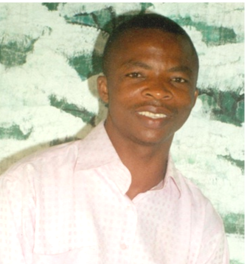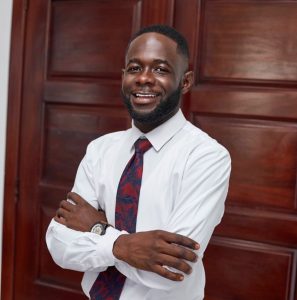 Obsessive Compulsive Disorder (OCD), is said to have been classified as a neurological disorder and viewed by many experts as the 4th most common psychiatric problem as well as one of the most distressing disorders in the history of humanity. It is manifested by intrusive thoughts and repetitive actions and takes up an excessive amount of victim’s time thereby, resulting in frustration, anger, helplessness, suicidal tendencies, hopelessness among others. Compulsion may either be physical or mental.
Obsessive Compulsive Disorder (OCD), is said to have been classified as a neurological disorder and viewed by many experts as the 4th most common psychiatric problem as well as one of the most distressing disorders in the history of humanity. It is manifested by intrusive thoughts and repetitive actions and takes up an excessive amount of victim’s time thereby, resulting in frustration, anger, helplessness, suicidal tendencies, hopelessness among others. Compulsion may either be physical or mental.
The new Diagnostic and statistical Manual (DSM V) no longer classifies it as an anxiety disorder and so along with its related disorders; OCD now has its own chapter in the manual signaling the need for all stakeholders to pay much more attention to the menace. This came to light at the Great Hall in the University of Ghana, Legon during the 3rd Annual Mental Health Conference jointly organized by the Department of psychiatry, University of Ghana Medical School, Department of Psychology, University of Ghana and Ghana Psychological Association (GPA) on the 31st October and 1st November 2013.
Speaking on the Theme: “Psychology in Everyday Life” Jane Quaye and Angela Dwamena-Aboagye of the ARK Foundation are women with a curiously similar background who have suffered OCD and have recovered to a great extent. In their presentation, the two women lawyers and long standing friends who work with organisations addressing women rights violations in Ghana and across the globe outlined what they have learnt firsthand by experiencing OCD and what they have also gathered through their own research and attendance of three annual International OCD Foundation Conferences in the United States of America in the recent Past.
The two vociferous women’s rights activists therefore, shared their particular symptoms, the journey of discovery in faith, support and learning, what possible treatments work for the condition, how this may be conceptualized, and their suggestions about what Ghanaian professionals like Psychologists, helpers and families could do to address the menace.
The conference also witnessed an excellent presentation by Dr. Kofi Krafona of the Department of Educational Foundations, University of Cape Coast on the topic; Catastrophising thoughts and anxiety among University students: comparison of psychology undergraduates and medical students. In the final analysis of his research work, it was conspicuously clear that Psychology students experience more catastrophising thoughts and anxiety than their compatriots in the medical school. What is your take on that? Contact Dr. Kofi Krafona for more information!!!
Other topics delivered by various personalities at the conference include:
- Prevalence of insomnia in Adult Population in Parakou, Benin. By Dr. Francis Tognon Tchegnonsi, Department of Psychiatry Borgou, Parakou, Benin.
- Masculine Gender Role Conflict and its Psycho-social correlates: a study among Homosexual Men in Ghana. By Yvonne Otchere Dominion University College.
- Increasing Access to Primary Mental Health Care through task shifting, embracing a new cadre of graduates in psychology in primary health care in Ghana. By Dr. Angela Ofori-Atta, Department of Psychiatry University of Ghana Medical School.
- Cultural identity, psychological wellbeing and Drug Abuse. By Prof. C . Charles Mate-Kole. Department of Psychology, University of Ghana.
In his closing remarks, GPA president, Prof. C. Charles Mate-Kole indicated among others the formation of the Pan African Psychological Union (PAPU) and the passage of the Mental Health as well as the Psychology bills as some of the achievements of his administration and called on all to support the association in its future endeavours.
David Banaaleh (King-Dave)
BSc (Psychology)
Founder (NetBups)
Editor-In-Chief (www.choicism.com)
0247113859





